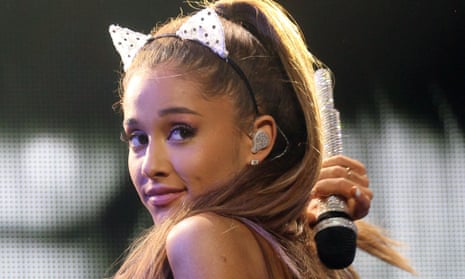For decades in the church of pop, the chorus has been the altarpiece, the focus for all those who worship there. It’s where songwriters install their most beautiful, affecting work, and the contrast between it and the relative plainness of the surrounding verses only enhances its dazzle. “Don’t bore us, get to the chorus!” Berry Gordy once joked, understanding that this is what listeners truly gather around.
In 2014, there were plenty of excellent choruses: some songs, such as Sia’s Chandelier, are so impatient to get to them that, in their haste, they cut the second verse in half. But pop’s architecture is being radically altered by modern songwriters, with more and more of them either removing vocals from the chorus, or getting rid of it altogether. Instead, emphasis is now placed on the bridge – the bit of the song that links the verse to the chorus – and on ravey instrumental breakdowns.
The likes of David Guetta brought modern dance sounds to pop, but played by its rules. His successors, though – Avicii and Zedd among them – care not for the ways of the 1960s. Instead, they put the big guest vocal in the bridge with a simple melody as its chorus, inducing people to dance rather than listen.
Avicii’s influence is plain in Coldplay’s A Sky Full of Stars, which he co-produced, with its triumphant instrumental chorus, while John Newman dashes for shelter as Calvin Harris’s digital stormclouds burst on Blame; and Duke Dumont is now confident enough to make his own melodies the main event. The zenith is DJ Snake’s magnificently shallow Turn Down For What, which is three choruses enjambed with energy-ramping bridges, using Lil Jon’s yelling as cement.
Their influence is spilling down to R&B-flavoured pop. Cheryl tapped in a saxophone for the chorus of Crazy, Stupid, Love, while Jason Derulo’s Wiggle and Talk Dirty similarly feature instrumental choruses designed for lechery at the side of the dancefloor. Ariana Grande’s Problem is the starkest example of all: its bridge is sheer upward-spiralling beauty, while its chorus is just a bloke whispering.
Occasionally, there’s no chorus at all. On Katy Perry’s Dark Horse, a potentially embarrassing but actually quite credible stab at the rap market, her genius is to build a long bridge to nowhere. Iggy Azalea and Rita Ora’s Black Widow was a carbon copy of it: on each, the chorus is just one line – “There’s no going back” and “Like a black widow, baby” respectively – which instantly evaporates, sending the song on a fall into a minimalist verse.
In the world of real rap tracks we have Bobby Shmurda’s Hot Nigga, which isn’t exactly aiming at the pop market, but which has nevertheless installed itself in the upper reaches of the US charts for weeks. The production leaves spaces for a chorus hook, but Shmurda just barrels through it all with a single never-repeating verse, leaving drugs, clips and blowjobs in his wake. The bars where the chorus should be take on more power as they roll into the next bit of the endless verse, like the murder-revealing “Mitch caught a body ’bout a week ago!”
Nicki Minaj meanwhile, uses a deliberately weak chorus on Lookin Ass, with a faltering, muffled male singer, to better underline her mighty flow. Her other big single this year, Anaconda, is less verse-chorus-verse and more a random agglomeration of potential memes.
Why is the chorus disappearing? In the case of the dance producers, it’s down to pride (or maybe hubris), as they show off their genre’s triumph over traditional pop structures. They are also emphasising that they’re still dance artists at heart, with one eye on their club audience and lucrative DJ residencies. In R&B and rap, it’s perhaps the beginning of a backlash against the Drake-era new-school where, as Danny Brown says, “kids are learning they have to have a hot hook; if you don’t, you ain’t shit”. Instead, raw lyricism is jostling to become king again.
It would be a shame though if the chorus was eroded any more. Bridges rely on tension, and that’s fine for engineering – but, as listeners, we need release. The chorus is where lyrics tend to turn from personal to universal, and what takes music to the masses.

Comments (…)
Sign in or create your Guardian account to join the discussion